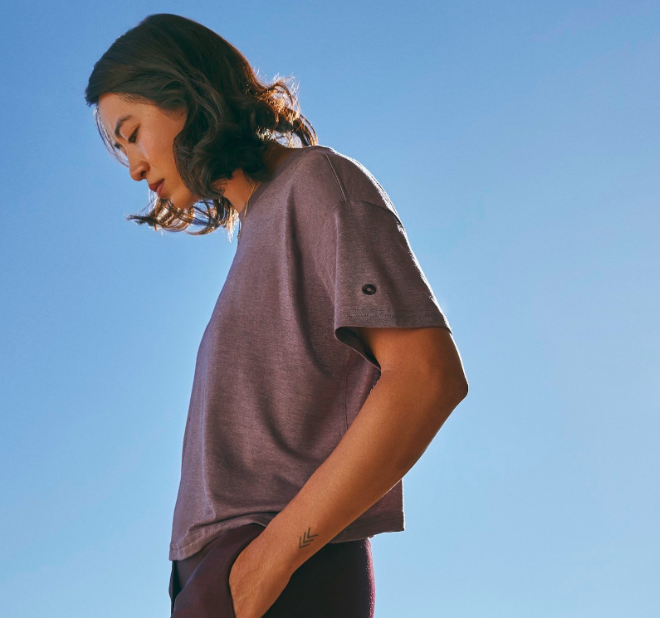Tim Brown and Joey Zwillinger co-founded Allbirds in 2016 to create an eco-friendly brand of apparel. “Fashion doesn’t need more things, it needs better things,” Brown said to Vogue.
The most recent material breakthrough, XO, preserves tees for longer without the use of extractive metals like silver or zinc. It is a byproduct of the seafood business and is created from Canadian crab shells, but when spun into fiber, it acquires the property of naturally combating odors. Because of this, tees need fewer washings, which is good for the environment.

TrinoXO is the brand’s exclusive eco-knit, which is composed of 65% Tencel and 30% merino wool. It costs more than those cotton five-packs from big-box stores ($48 and $58, respectively), but considering how very light and breathable it is, how well it reduces odors, and how ecologically friendly it is – the premium is worthwhile. Along with the fundamental neutrals like off-white and black, the distinctive hues range from terracotta to misty grey.
Although the TrinoXO does contain chitosan, a fiber extracted from snow crab shells, a company representative assured customers with shellfish allergies that this shouldn’t be a cause for concern as chitosan doesn’t contain the protein that causes allergic reactions and has been used safely in food and medical settings. Even though we have faith in Allbirds’ capacity to use innovative and eco-friendly materials, chitosan makes up only 5% of the TrinoXO T-shirt overall and appears to have been used purely for its capacity to lessen odor.
Crabyon
Since 40% of a crab’s mass is made up of meat, six to eight million tons of waste crab, shrimp, and lobster shells are produced annually worldwide. These shells from waste materials are either disposed of in landfills or removed through waste management, which is expensive and unattractive to producers. Only a few thousand tons of the approximately 150,000 tons of useable chitin that can be found in crab shells each year are actually exploited for commercial purposes.
In April 2019, Allbirds achieved carbon neutrality through self-taxing and funding carbon offset initiatives. Investing, as an illustration, in the advancement of wind energy
The company hopes to actively reduce carbon emissions in the environment by 2025 and make all of its apparel using carbon-neutral methods. Allbirds employs resources like sugar, castor bean oil, recycled water bottles, wool, wood, recycled cardboard, and recycled nylon in addition to crab shells.
Additionally, it developed and released a technology for tagging carbon footprints. Every product has a grade that estimates its carbon impact for the consumer.
BY THE NUMBERS:
- 7.1 kg carbon footprint
- 100% carbon neutral
- 20% lower carbon footprint than standard cotton or polyester t-shirt
- 100% FSC-certified eucalyptus tree fiber
Resources:
https://www.surfacemag.com/design-dose/product/allbirds-trinoxo-tee
